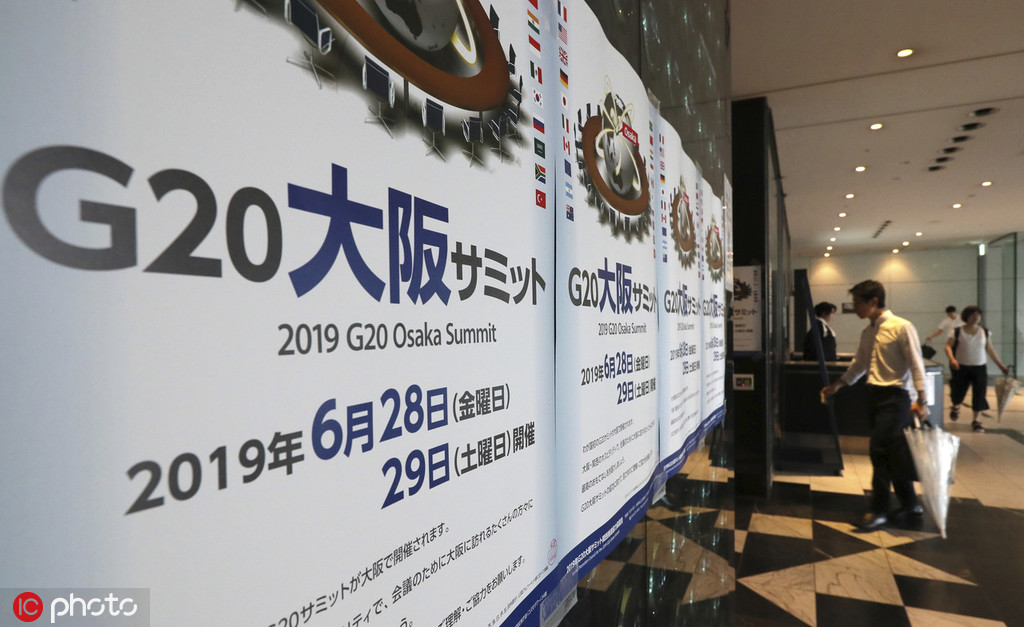Negotiators pave way for meeting at G20


Senior officials from China and the United States will communicate in preparation for the meeting between their heads of state in Osaka, Japan, during the G20 Summit next week, the Ministry of Commerce said on Thursday.
China hopes that the US will create the "necessary conditions and atmosphere" for evenhanded dialogue, ministry spokesman Gao Feng said. The US should listen to its industries, call off its "wrong practices" and solve problems through consultation and cooperation, he said.
On Tuesday, President Xi Jinping and US President Donald Trump spoke by telephone and agreed to meet at the G20 Summit next week. News of the planned meeting raised hopes for a possible breakthrough in the stalled trade talks between the two countries.
As the world's two largest economies, the US and China have complementary economic structures and very close ties, and there is a huge intersection of interests between the two sides, Gao said.
He stressed that China believes the two countries will be able to find a proper solution to their problems through dialogue as equals and due consideration of legitimate concerns.
Gao added that China firmly opposes unilateral imposition of tariffs and trade bullying amid trade differences and will take necessary countermeasures.
"We hope that the US will put an early end to the wrong practices and avoid further losses to businesses and consumers on both sides, especially with a recessionary impact on the world economy," he said.
Huang Qifan, vice-chairman of the China Center for International Economic Exchanges, said it is US importers who bear over 95 percent of the costs caused by the US government's additional tariffs on Chinese goods.
The US government threatened to place and increase tariffs on about $500 billion worth of Chinese imports, but 60 percent of them are actually products manufactured by the US companies in China. Hefty tariffs will harm the interests of US firms operating in China, Huang said.
Major US tech businesses are often closely interconnected with the Chinese market, he said. So the US government's tightened restrictions on Chinese firms, like telecommunication giant Huawei, undoubtedly do no good for US companies, he added.
A trade war between China and the US should be avoided as it is dangerous for both countries and the rest of the world, said Chen Dongqi, an economist at the National Development and Reform Commission's Academy of Macroeconomic Research.
"Amid the trade tension, there are important hidden opportunities that are conducive to China's self-reliance and high-quality development," Chen said. For instance, in response to the US government restrictions, Chinese companies are more likely to speed up commercial use of domestically developed technologies and invest more in research and development to break key bottlenecks and develop core technologies, he said.
































